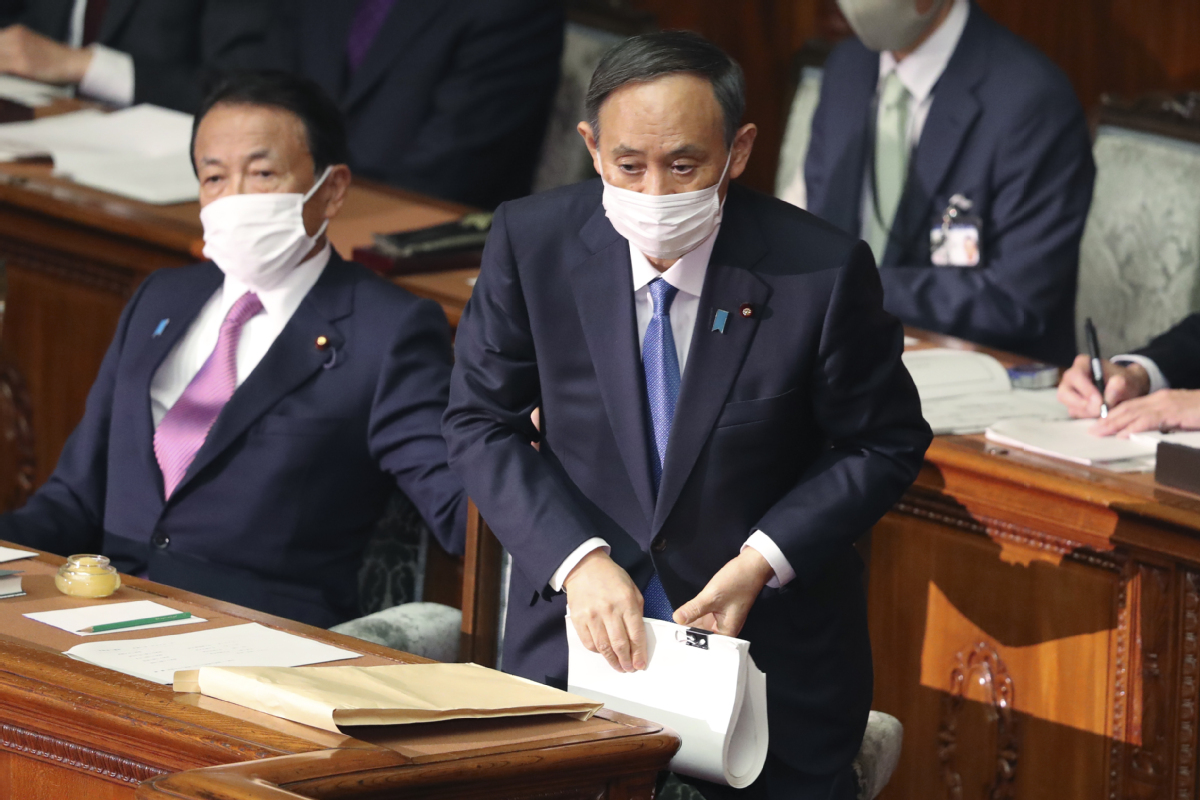Japan vows to protect medical system


Japanese Prime Minister Yoshihide Suga vowed on Monday to exhaust all means to protect the country's medical system and reiterated his resolve to host the delayed Tokyo Olympics and Paralympics this summer.
In a policy speech marking the start of Japan's regular parliamentary session this year, the 72-year-old leader also laid out environmental and digitization plans to bolster the nation's economy, which has shrunk at a record rate during the pandemic.
"What is important is to provide necessary medical services to people in need. We will exhaust all measures to safeguard the medical system," Suga said, adding the government is taking "effective measures" to contain the spread of coronavirus infections under a state of emergency covering 11 prefectures, including Tokyo.
The prime minister, who took office in September, has seen his popularity slide over his handling of the pandemic as the number of infections rise. He said his government would pass a law adding penalties and incentives to spur virus management.
The penalties include a maximum fine of 1 million yen ($9,600) or a prison sentence of up to one year for people who test positive for the virus yet refuse to be hospitalized.
There is also a maximum fine of 500,000 yen for businesses that fail to comply with government requests to adopt shorter hours or temporarily shut down.
Suga promised further support for hospitals treating COVID-19 patients, including through subsidies to increase their capacity. If necessary, they will deploy medical teams from the Self-Defense Forces.
For the upcoming Tokyo Olympics, which is slated to take place in July, Suga said it will serve as "proof that humanity defeated the coronavirus" as well as an opportunity to display Japan's recovery from the 2011 earthquake, tsunami and Fukushima nuclear accident.
The public, however, remains skeptical.
A Kyodo News survey conducted this month showed around 80 percent of Japanese wanted the events to be rescheduled again or canceled.
On domestic policies, Suga said the government will support companies to develop cutting edge technologies including next-generation solar cells, storage batteries and carbon recycling.
"Japan will expand the use of hydrogen and offshore wind energy, introduce carbon pricing and plant forests in order to meet the target of carbon neutrality by 2050," Suga said.
He added the country's green growth strategy is expected to bring an annual economic boost of 190 trillion yen by the time the goal is met.
Analysts are cautious on the country's future economy.
Given the 11 prefectures under a state of emergency produce roughly 60 percent of Japan's economic output, a Bloomberg median estimate suggested that Japan's economy will contract again in the three months through March, halting its recovery from a record slump last year.
Agencies contributed to this story.



































